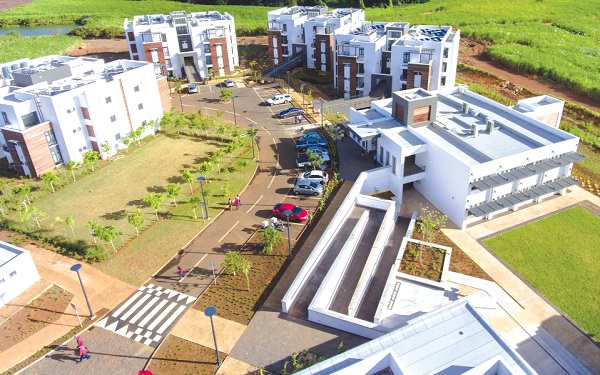As this column has echoed consistently, application of learning to the real world is by far more valuable than theory.
According to Fred Swaniker, founder of African Leadership University (ALU), research from various cognitive experts including the Centre for Creative Leadership has shown that the most effective ways to acquire skills is as follows: 10 per cent from traditional classroom learning; 20 per cent from ‘developmental relationships’ (interactions with peers, mentors and coaches); and 70 per cent from real-world experience. In a nutshell, we learn best by doing.
So while generative Artificial Intelligence (AI) – as exemplified by the likes of Chat GPT etc., – can make the 10 per cent more efficient, it can't replace the 20 per cent (human relationships) nor the 70 per cent (real world experience).
Today’s column continues from last week’s (March 6, 2023) titled, “How ‘Artificial Intelligence’ makes learning faster, easier”. Fred Swaniker explores the world of work with AI as follows:
Real world learning
The best educational institutions and corporate learning environments will be those that focus on creating spaces for debates, peer-to-peer learning, structured mentorship and coaching, and most importantly, real world, hands-on learning by doing.
The most impressive talent in the future will not be those who test well – it will be those who go into the real world and apply their learning.
This is what our learning model at African Leadership University has been based on since we founded it in 2013, and we find that it develops people far better than traditional methods. It is also ‘Chat GPT-proof’.
No AI can replace human relationships or real-world application.
So, what are you doing to get your students or staff out of the classroom and into the real world?
How are you throwing young professionals into the deep end so they grow by stumbling, picking themselves up and learning from their actual successes or failures?
The ability to integrate silos will become more crucial: AI is brilliant at creating tools to perform very specific functions.
For example, AI tools exist to create art, music or essays.
AI machine vision can detect skin cancer, create a 3D map of a room, etc. Soon, there will be millions of tools that can optimise every little thing we can think of.
But the world does not work in silos.
The most brilliant solutions are often found at the intersection of different disciplines.
Therefore, humans with architectural/design thinking will be more important than ever.
As will the ability to integrate different functionalities to achieve a desired outcome.
Good news
Those who know the pros and cons of various tools, and who understand how they fit together, will be prized. The ability to integrate systems, and optimise components to function together will be more necessary.
The good news is that this will create a whole new set of jobs in technology that do not require intense levels of coding.
ChatGPT and other tools will write code for various functions.
But humans will need to architect the various functions into a greater whole.
How are you helping your people to see the bigger picture and connect the dots?
How are you teaching systems thinking in your school or company?
‘Why’ will matter more than ‘what’’.
In the past, many people went to school or took a corporate training programme without understanding the higher purpose of their education. But in today’s world, where a lot of the ‘what’ is being figured out by AI, the ‘why’ is becoming more crucial.
Let’s face it; the world’s problems are not going away. If anything, they are getting worse.
We face climate change, poverty, infrastructural challenges, pandemics, the destruction of our environment, gender and racial injustice, energy challenges, food insecurity, and the prospect of another world war.
The list goes on and on.
AI by itself cannot solve these problems. So now, more than ever, people need to have a reason to want to solve problems and a reason to learn.
At African Leadership University, for example, we do not simply give our students a menu of academic disciplines to choose from.
We give them a menu of the seven ‘grand challenges’ (e.g. healthcare or education) and seven ‘great opportunities’ facing the world.
We then ask them to declare a ‘mission’: to pick one of these problems that they want to solve and then curate their learning around this problem.
Inspire deep purpose
Our goal is to inspire them with a deep purpose for their learning, so that they WANT to solve global problems and challenges in the first place.
We challenge them to ‘do hard things’ to change the world.
I believe that educational institutions today, therefore, need to see their role as igniting ‘fires’ in young people, to get them to care about the world’s problems and see its great opportunities for progress.
Schools should create environments that inspire students to find their purpose because they now have highly efficient tools that can enable them to follow that purpose.
But only if they have one. If we can do this, then we will unleash an unstoppable army of problem solvers with powerful weapons that can change the world.
What are you doing to get your students or employees to ‘give a damn’ about global problems?
How are you reinforcing the higher purpose that AI tools can be used to solve?
How do you light a fire to make a difference in a person?
That is now your job.
Education has always been a powerful lever for driving rapid progress in humanity.
By adapting these such critical shifts (and others we can think of), every teacher, corporate executive, education ministry, school and university need not fear AI.
In fact, by leaning into AI, we can define a golden age of education that will unleash yet another wave of human-driven progress in the world.
Email: anishaffar@gmail.com
African Leadership University, Mauritius

